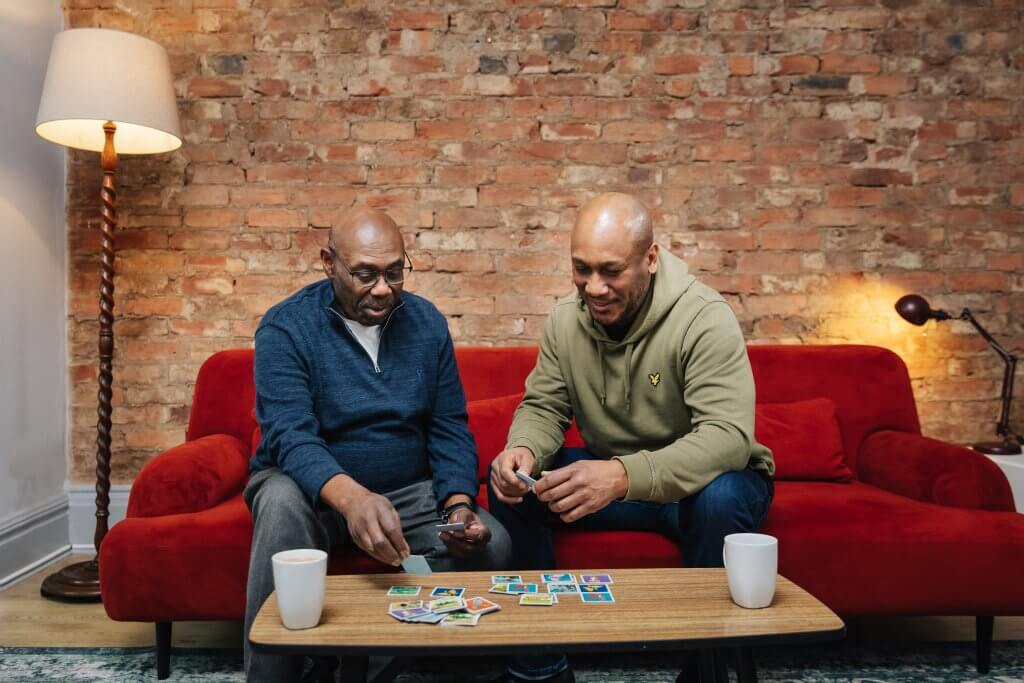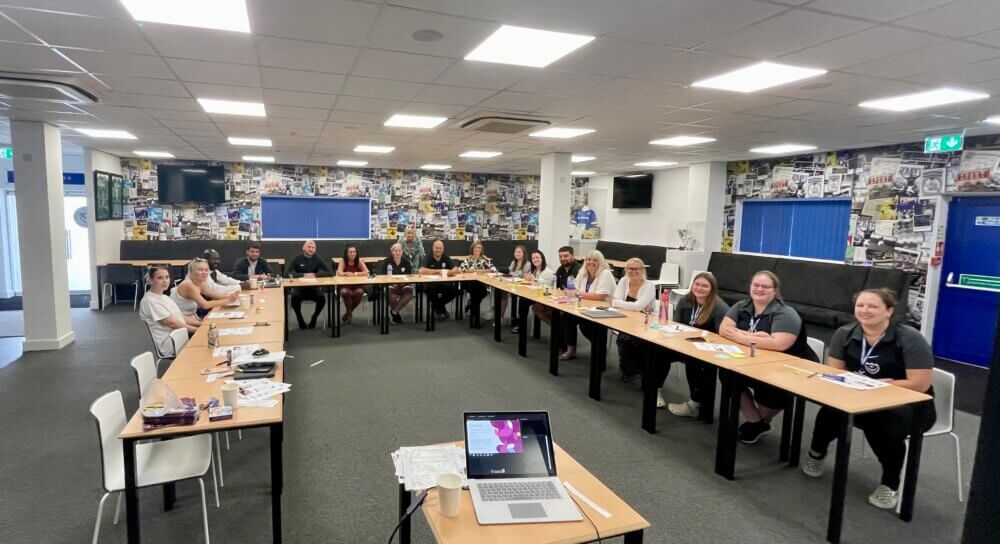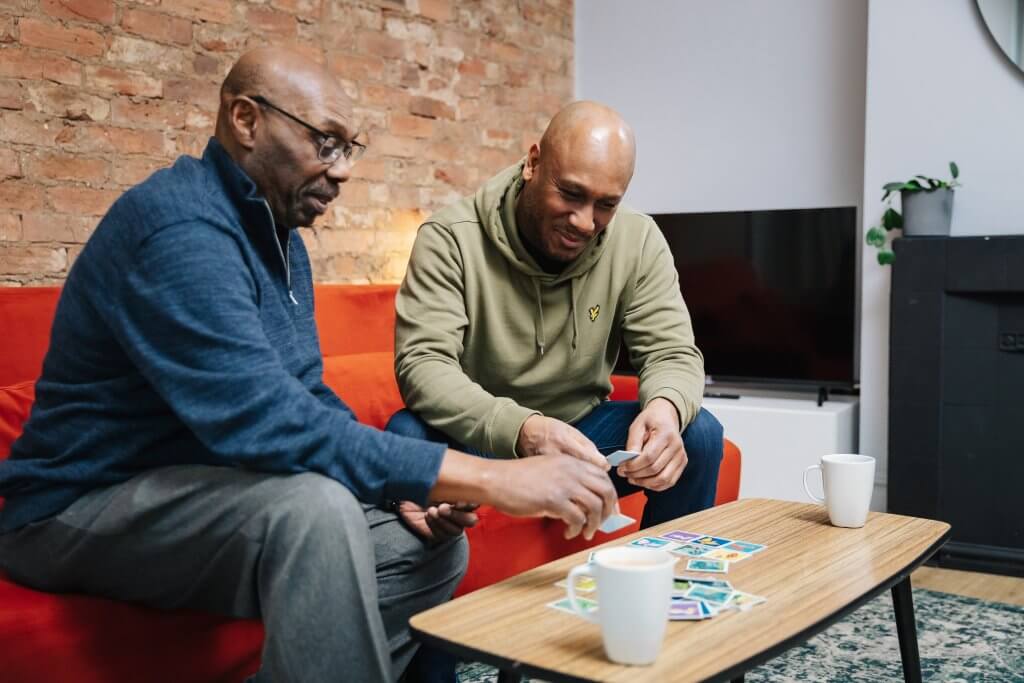What’s the difference between Dementia and Alzheimer's?
Are Dementia and Alzheimer’s the same?
Dementia is not a disease, but it identifies a group of symptoms that may include:
- Memory loss
- Changes in personality and mood
- Difficulties in problem solving, thinking and speaking
Dementia is caused by a range of diseases affecting the brain, including Alzheimer’s.Alzheimer’s is a disease, and is the most common cause of dementia.
What are the causes of dementia?
As we mentioned, dementia is a set of symptoms. These symptoms can be caused by an array of different diseases that produce a loss of nerve cells in the brain. Dementia is progressive, so the symptoms will get worse with time.There are more than 100 known causes of dementia, including:
- Alzheimer’s disease: abnormal ‘plaques’ and ‘tangles’ build up inside the brain and cause nerve cells to die.
- Vascular dementia: the second most common cause of dementia, it usually starts after a stroke or ‘mini strokes’. The lack of oxygen to the brain causes nerve cells to die.
- Dementia with Lewy bodies: abnormal structures (Lewy bodies) form in the brain and cause nerve cells to die. Symptoms may include tremors and hallucinations.
- Frontotemporal dementia: starting with clumps of protein forming in the forehead part of the brain. It can develop at a younger age (around 60 years old).
You can develop more than one type of dementia at the same time (mixed dementia), with symptoms from multiple diseases.It is important for the diagnosis to specify what type of dementia you have. This way, you’ll be able to learn how to better cope with the symptoms and how to set up the most appropriate dementia care.
What is Alzheimer’s disease?
Alzheimer’s is the most common disease causing the set of symptoms called “dementia”. The damages to the brain – which start long before the first symptoms appear – are caused by ‘plaques’ and ‘tangles’ which disrupt the communication between nerve cells.Although there is currently no cure for Alzheimer’s, treatments and personalised Alzheimer’s care can alleviate the symptoms and improve the quality of life of people affected by this progressive disease.
What are the symptoms of Alzheimer’s?
Everyone’s experience of Alzheimer’s is unique: each person affected will have slightly different symptoms. Also, symptoms will change over time as the disease progresses.These are the most common signs you can expect to experience in the early stages of Alzheimer’s:
- Memory lapses
- Forgetting how to do simple tasks
- Feeling lost and not recognising where you are
- Forgetting names
- Difficulty solving problems and making decisions
In the later stages of Alzheimer’s, symptoms will be likely to also include:
- Sudden mood swings (with possible signs of depression)
- Poor or impaired judgement
- Difficulties walking and eating
- Hallucinations (more rare, but possible)

Further resources
Check out these charities for more information about Alzheimer’s and dementia, and to find local support:
How Home Instead can help
Personalised home care that is designed to meet your needs is ideal when you require help with a disease that progresses over time. Private care should change along with your or your loved one’s conditions, in order to suit your symptoms.At Home Instead, we can match you with Care Professionals in your local area who have specialised in conditions related to dementia and Alzheimer’s. These are some examples of what our Care Professionals can do to ensure you live an independent and dignified life:
- Help with personal care like bathing, dressing and eating
- Engage in mentally stimulating activities
- Facilitate social interaction and limit self-imposed isolation
- Help maintain familiar routines
Related Advice & Support

New Dementia Training
Discover more

Making communities dementia friendly
Discover more

Stepping into the shoes of someone with dementia with Training2Care’s Dementia Bus
Discover more

Supporting refugees with Family Dementia guide
Discover more

What’s the difference between dementia and Alzheimer's?
Discover more

A guide to dementia care
Discover more

Tim Howell , Learning and Development Partner
For the past 16 years, I have been dedicated to the care sector, progressing from Care Professional to Care Manager, and later assuming roles such as Specialist Training Manager. Currently, as a Learning and Development Partner at Home Instead’s National Office, I develop and review training programs, collaborate with external organizations like the Alzheimer’s Society, and manage various impactful projects.
My passion for dementia care has guided much of my work, from engaging with advanced dementia support initiatives, such as those offered by the End of Life Partnership, to staying informed through events like the annual Dementia Summit. These efforts reflect my deep commitment to enhancing the care and quality of life for individuals living with dementia